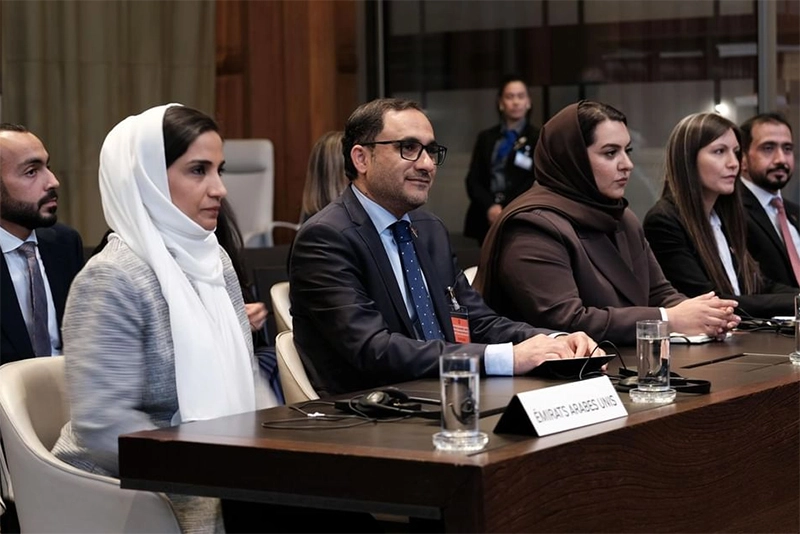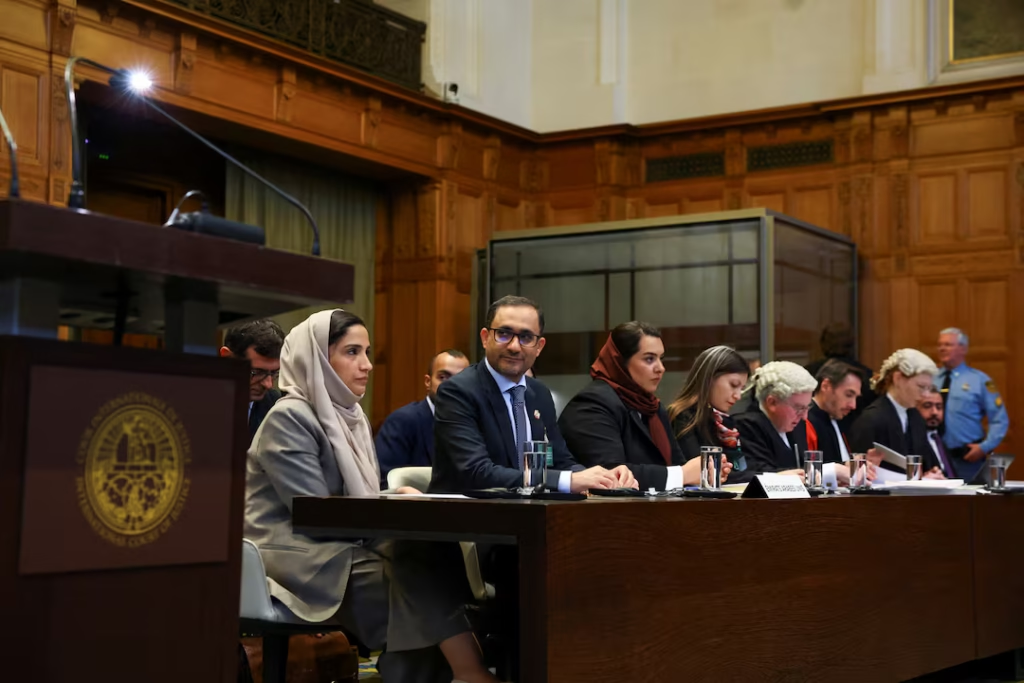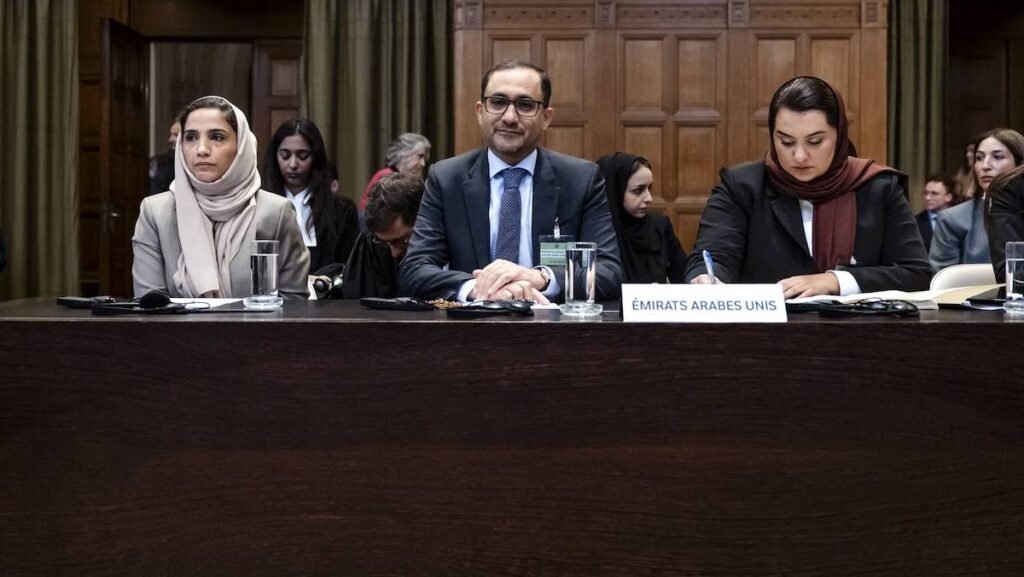In a recent international development, the International Court of Justice (ICJ) has dismissed Sudan’s urgent request to halt the United Arab Emirates (UAE) from allegedly supporting paramilitary forces involved in Sudan’s internal conflict. This ruling offers a significant legal win for the UAE and highlights the court’s approach toward international claims of intervention.
The Sudanese government had accused the UAE of funding the Rapid Support Forces (RSF), a group they claim has worsened the civil unrest in the country. But the ICJ found insufficient grounds to proceed with emergency measures against the UAE, stating that the evidence provided did not meet the threshold required to justify such action.
What Was Sudan’s Claim?
Sudan brought the case before the ICJ, arguing that the UAE’s alleged financial and military support to the RSF had violated international laws, including the Genocide Convention. The Sudanese authorities claimed this support had fueled violence, contributed to civilian deaths, and deepened the humanitarian crisis in the region.

In their emergency request, Sudan asked the ICJ to impose provisional measures—temporary rulings meant to prevent further harm until a full case could be heard. However, the court found that Sudan failed to provide enough proof that the UAE’s actions posed an immediate threat warranting such intervention.
UAE Responds Firmly
The UAE firmly denied all allegations, calling Sudan’s claims “baseless” and “politically motivated.” Their legal team emphasized the country’s dedication to peace in the region and its ongoing humanitarian efforts. According to the UAE’s response, the government has always worked within international frameworks to ensure regional stability and prosperity.

Legal experts representing the UAE further noted that accusations of genocide or funding of militant groups are serious and must be backed by credible and verifiable evidence, which, according to the ICJ, was lacking in this case.
ICJ’s Ruling Explained
The ICJ, headquartered in The Hague, clarified that Sudan had not successfully demonstrated that the rights it was seeking to protect were under imminent threat. While the court acknowledged the gravity of the situation in Sudan, it stressed that provisional measures are only granted in cases of immediate risk.

The court’s decision was procedural at this stage. It does not determine whether Sudan’s broader case against the UAE is valid or not. However, this ruling does suggest that future proceedings may face challenges unless Sudan presents more substantial evidence.
Why This Ruling Matters
This case marks a rare instance where a conflict between two nations in the Middle East and Africa reaches the global legal stage. For the UAE, this is not only a legal victory but also a reaffirmation of its diplomatic stance. The ruling helps reinforce its narrative as a regional stabilizer rather than an instigator of violence.
For Sudan, the rejection may be seen as a setback. Yet, it could also be a chance for the country to rethink its legal and diplomatic strategy while continuing to push for peace at home.
Regional and Global Reactions
International observers have noted that the ICJ’s refusal to grant Sudan’s emergency plea could set a precedent for how similar cases are treated in the future. Human rights organizations have urged both parties to focus on diplomatic dialogue and humanitarian relief rather than extended litigation.
The African Union and United Nations have also expressed hope that regional cooperation and mediation efforts will continue without further escalation. The UAE, in particular, has reiterated its commitment to supporting Sudanese civilians through aid and peacekeeping initiatives.
Legal Experts Weigh In
International law scholars noted that while Sudan’s appeal touched on serious issues like genocide and international funding of armed groups, the legal bar for provisional measures is understandably high. It requires not only credible evidence but also immediate risk to legal rights—something the ICJ determined was not clearly established.
Some analysts believe Sudan may return to the ICJ with a more comprehensive case, but others caution that without solid international support or documented proof, the case may not advance significantly.
UAE’s Image on the International Stage
The ruling comes at a crucial time for the UAE, which continues to expand its global diplomatic footprint. From hosting climate summits to engaging in humanitarian missions, the country has positioned itself as a key player in international peace-building efforts.
This ICJ outcome strengthens the UAE’s global image and supports its claims of neutrality and regional peace advocacy. It may also encourage further diplomatic partnerships, especially among countries wary of being unfairly accused in international courts.
What’s Next for Sudan?
For Sudan, the internal conflict with the RSF remains unresolved. The focus may now shift from international litigation to on-ground peace negotiations and humanitarian work. The government might still pursue further legal channels, but the ICJ’s latest decision signals that future claims must be carefully constructed and thoroughly evidenced.
Sudan is currently facing a worsening humanitarian crisis, and global aid organizations continue to call for ceasefires and unrestricted access to civilians. The path ahead will likely involve more dialogue, both within Sudan and with regional players like the UAE.
The Bigger Picture
This legal dispute also highlights how international courts are increasingly being used to address regional conflicts. While legal actions like this one bring visibility to humanitarian concerns, they also require a deep understanding of legal thresholds and global diplomacy.

In this case, the ICJ’s refusal to issue emergency measures doesn’t end the story—but it does redefine how such stories unfold in a courtroom setting.
Final Thoughts
The ICJ’s ruling in favor of the UAE underscores the importance of clear evidence and the rigorous legal standards applied in international courts. It also reflects the need for responsible diplomatic engagement during times of conflict.
As both Sudan and the UAE move forward, the international community watches closely. The goal for all must remain the same: peace, accountability, and justice—not just in the courtroom, but on the ground where lives are most affected.
Read More: This May, Grab Tickets To Mega Concerts & Shows In The UAE For Just AED 99; Here’s How!












